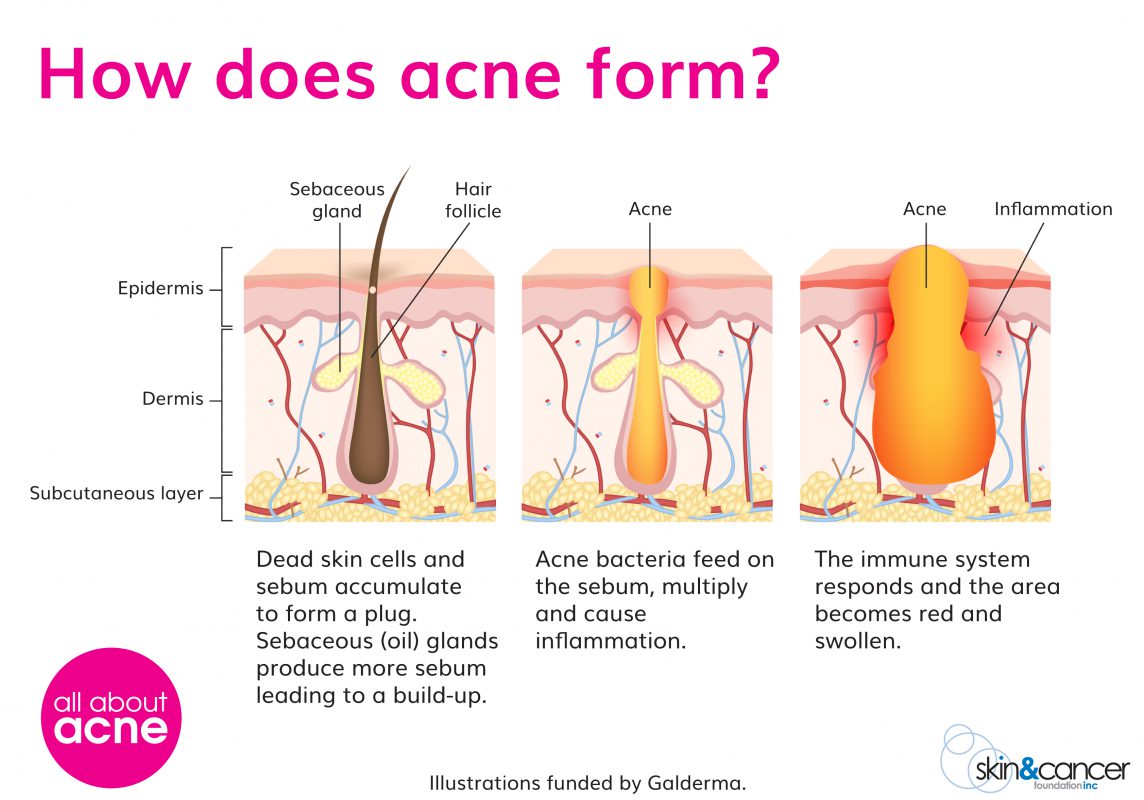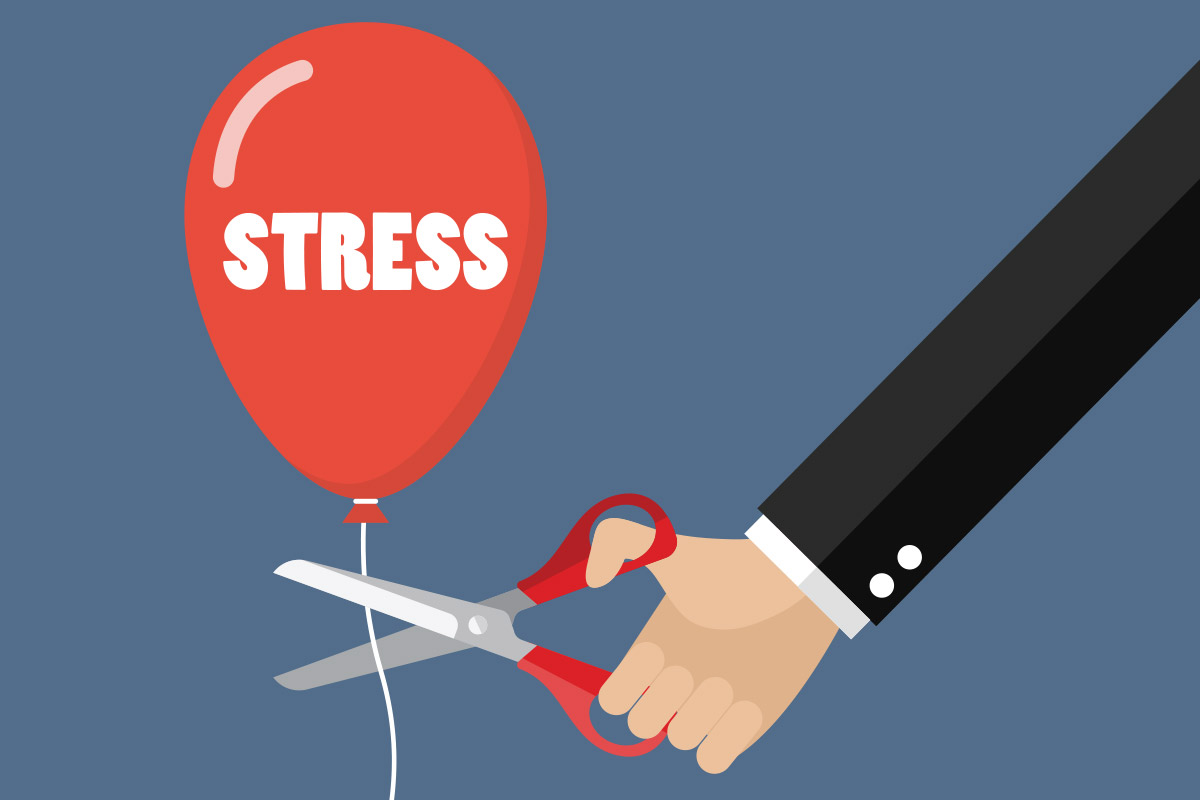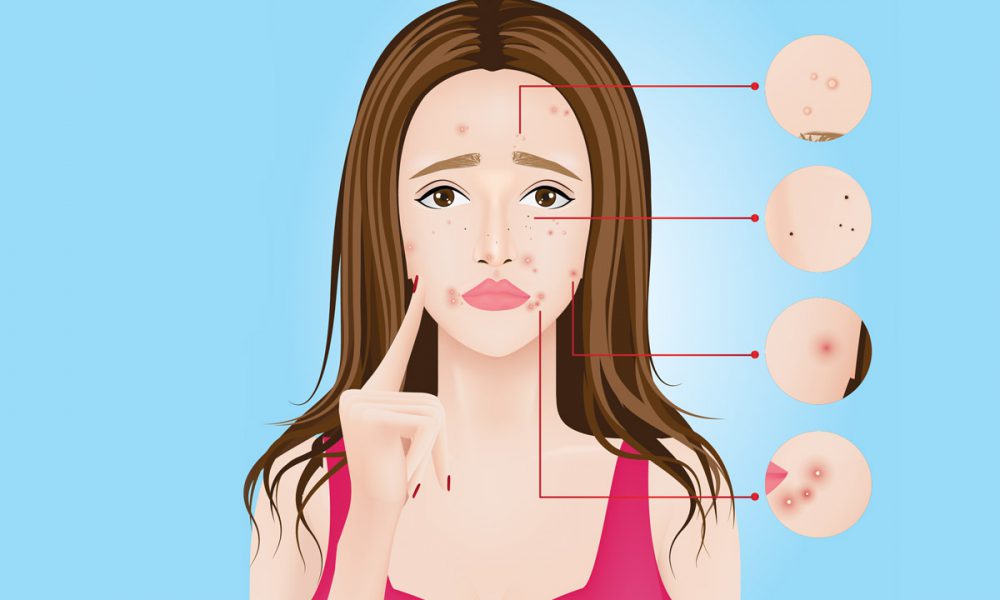Home » Acne Causes
Acne Causes
What causes acne?
Let’s uncover what’s really going on with your skin
Pimples appear when the oil glands (pores) in your skin get blocked.
Dead skin cells and sebum (oil) accumulate in your pores and form a plug.
Your hormones often contribute to this build up by encouraging your pores to produce more sebum. This is why you tend to get acne outbreaks during puberty, or – if you’re female – right before your period is due.
Once the pore is blocked, the build-up causes irritation and your immune system responds by sending bacteria to the area.
These bacteria multiply, creating inflammation causing the redness, swelling and tenderness of pimples.
Your face, neck, chest, shoulders and upper back are most likely to be affected by acne because they have the highest number of oil glands.

Who’s affected by acne?
Acne is the most common skin condition – affecting 85% of 12-24 year olds.
And it doesn’t matter whether you’re a guy or girl because both sexes get acne.

It usually starts at puberty when higher levels of sex hormones (known as androgens) create an increase in the size and oil production of glands.
Androgens are male hormones. They’re the same hormones that stimulate the growth of facial hair, muscle development and other male characteristics.
Teenage boys and young men have higher levels of androgens (male hormones like testosterone) than teenage girls, so they’re more likely to have acne, and unfortunately, are also more likely to have severe acne.
But androgens are not the only hormones that play a role in acne.
Many women and teenage girls notice their acne worsens just before their period. This is because of changes in female sex hormones (such as oestrogen), which can contribute to blocked and inflammed pores.
Women are more likely to suffer with ongoing acne
In some cases, this means acne may be hanging around even in your 30s and 40s.
Women can also develop acne for the first time later in life. This is called adult acne – a frustrating condition that’s becoming more common and appears to be linked to both hormones and stress.
Hormonal changes related to pregnancy or to stopping and starting oral contraceptives (birth control, ‘the pill’) can also cause acne in some women.
In women, acne can be aggravated by pregnancy. Conditions like polycystic ovarian syndrome are also linked to acne.
While acne will often clear up by itself, for some people acne is a serious, ongoing problem that needs medical help for the physical and psychological issues it can cause.

Lifestyle factors that affect acne
Uncover what lifestyle issues, like diet and stress, can affect your acne.
MY STORY
“Pimples can be really embarrassing”
“Getting pimples can be really embarrassing, even though I know it is all pretty normal and part of growing up. I try really hard not to pick the pimples that come up on my face but it is almost impossible not too!”
– Dana, 17

